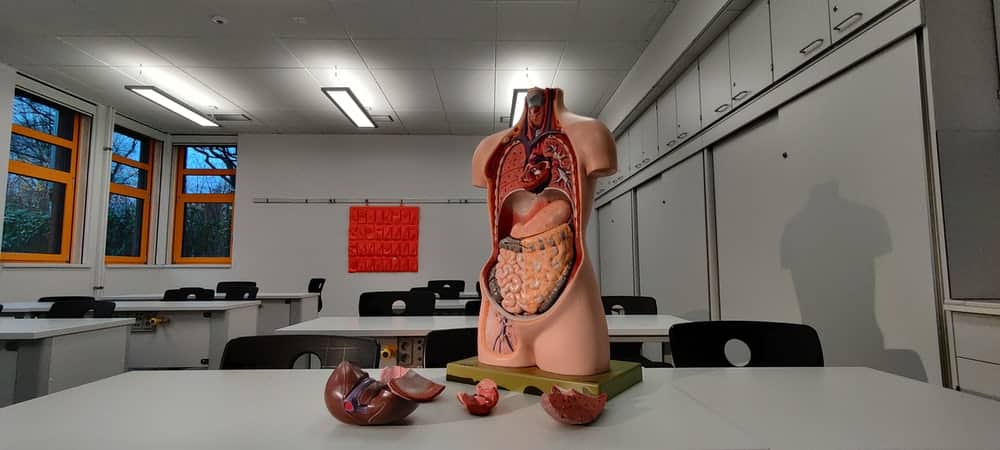There are many good reasons as to why the majority of people would prefer to become a doctor or physician. This field does not only grant you a lucrative and highly respected profession, but it also allows you to pursue your desire of helping people while practicing your favorite science at the same time. Most doctors are fulfilled with their profession in medicine as a result of being able to help people every day, no matter how cliché this may sound. Earning prestige is not enough to motivate a medical student to spend so many years in a study program. However, the combined benefits of the medical field are. In this article, we underline the most important things you need to know before joining med school.
The Different Types of Medical School
There are two types of medical schools in the United States, osteopathic and allopathic programs. The highly recognized MD degrees are given to medical students who practice allopathic medicine, while DO degrees are given to those who study osteopathy. Of course, a DO degree is less recognized in the medical field which is why DO students and applicants are concerned that MD students would compete for their positions after the residencies for both programs merge. While osteopathy is considered to be the treatment of the whole body or whole person, allopathy focuses on mental health treatment and overall disease prevention. However, most therapeutic techniques used by osteopathic physicians are not supported by research and may not be evidence-based.
Academic Requirements
Your qualification for med school and academic achievement is mainly determined based on your MCAT and GPA score. GPA may be the most important variable when it comes to med school qualification, however, there are many different interpretations and grading practices that influence your GPA score. Medical schools will consider and evaluate the prestige and strength of your undergrad institution, this means that a 3.7 GPA at a certain undergrad school may be considered higher than a 3.8 GPA score at a different school or institution.
Moreover, many ADCOMS would consider your overall GPA in addition to your Science GPA, which is slightly lower for most students in this field. A Science GPA involves your BCPM courses, short for Biology, Chemistry, Physics, and Math.
Research Projects
In order to apply for med school, you need to express your hard-earned science knowledge. The undergraduate research experience you gain will set your application apart from other med school applicants. It also goes a long way in impressing medical students as the majority are looking for those who are into research. You can easily involve yourself in college-based research programs offered with your study course, or you can seek other undergrad summer offerings such as national research experience for undergraduates programs. Aim to prioritize your research efforts every semester, as you’ll build closer relationships with your faculty mentors and acquire more knowledge during your undergrad years than you can imagine.
Résumé Experience
The admissions committees that evaluate your application will not expect you to have real experience treating patients, however, they will be interested in knowing that you have actually spent time trying to get to know what your future career would be like. Medical schools and admissions committees in the Caribbean school arena would prefer if you have been involved in job shadowing with medical professionals like doctors and DO physicians. Non-shadowing opportunities are also available if you want to go the extra step and add to your Résumé. For example, you can volunteer to handle the filing of x-rays in any local hospital which will give you an amazing opportunity to communicate with radiologists and benefit from their experience.
The Most Suitable Major for You
While grades are not the most important factor in your college application, you need to pick a field that demands a competitive GPA score, and one that matches your own score. For example, MDs or medical doctors need to acquire a 3.7 GPA, while the recommended GPA for osteopathy doctors or DOs is 3.5, and 3.4 for doctors of Naturopathy or NDS. You may plan to major in biology, but find it more interesting to earn your bachelor’s in the field of chemistry. With that in mind, pre-med classes are no indication of what you’re going to major in. The most important thing is to focus on your cumulative and science GPA and excel in the required classes by med school adcoms such as Physics, Maths, Biology, and Chemistry.
People consider the medical field for so many reasons like practicing the science of humans and contributing to making other people’s lives better by treating their ailments. It’s a highly respected field that offers lucrative professions and promising careers. If you want to apply for medical school, you need to understand the different types of academic and extracurricular requirements that make you qualify. This includes adding experience to your résumé, involving yourself in research projects, and acquiring an adequate GPA and science GPA score.
You may also like
-
Common Misconceptions About Disability Law and Lawyers
-
Finding the Right Disability Lawyer: Key Factors to Consider
-
Creating Families Across Canada: The Journey Through Adoption
-
Understanding the Practical Applications of Ibutamoren in Research
-
Navigating Regulations and Permits in the Crude Oil Hauling Industry
